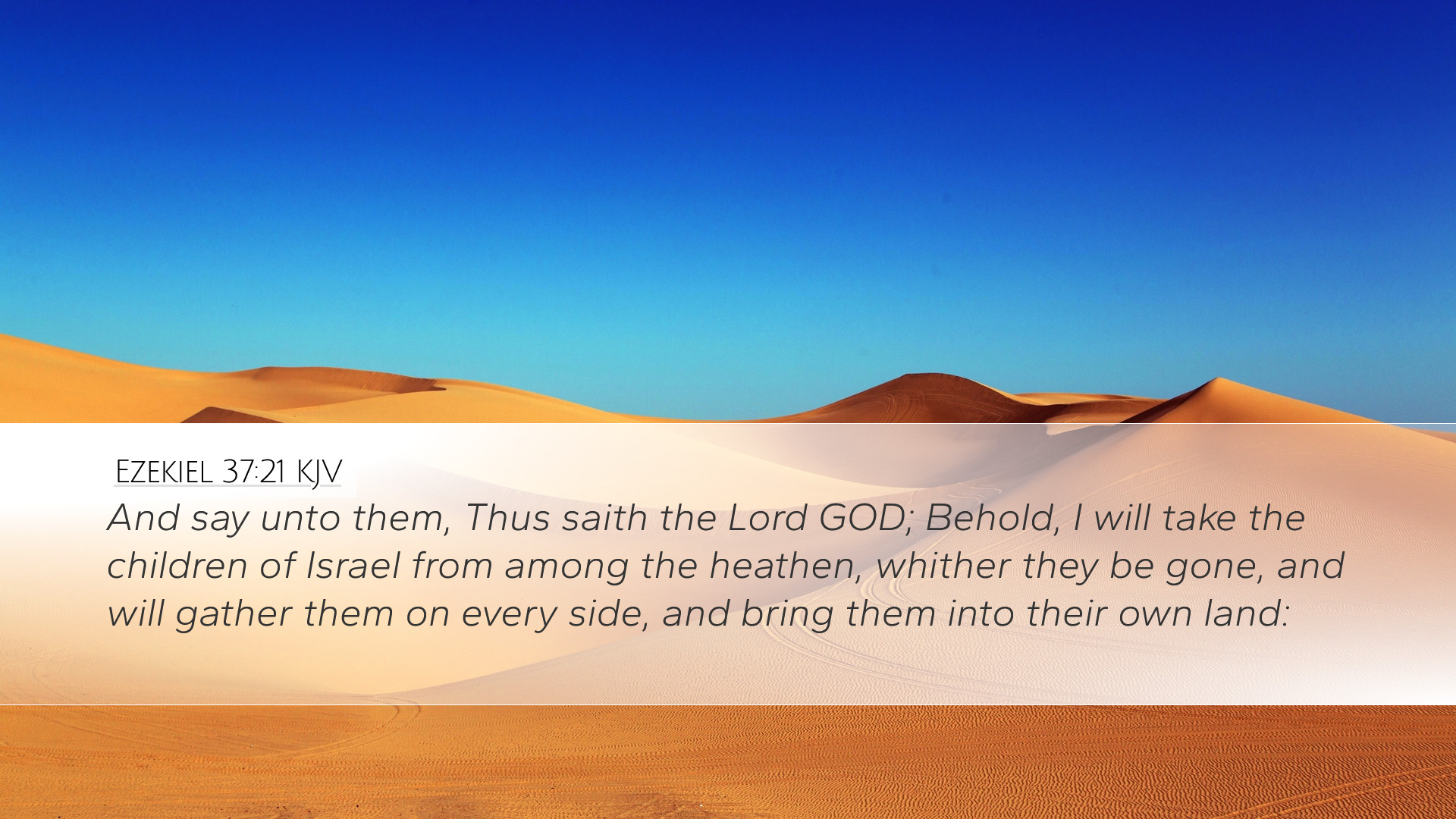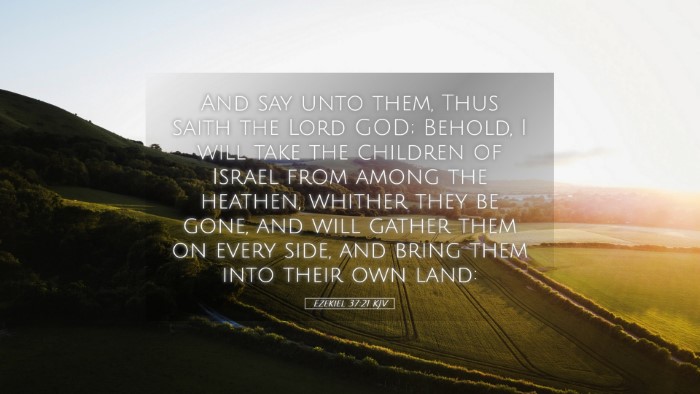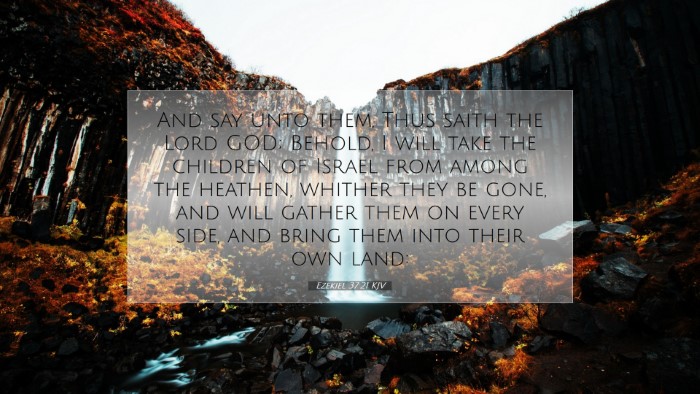Ezekiel 37:21 Commentary
Verse: "And say unto them, Thus saith the Lord GOD; Behold, I will take the children of Israel from among the heathen, whither they be gone, and will gather them on every side, and bring them into their own land."
Introduction
This verse is situated within one of the most significant prophetic visions of Ezekiel, known as the vision of the valley of dry bones. It offers profound theological implications about restoration and hope for Israel. It reflects God's faithfulness to His covenant with His people and lays the groundwork for understanding the larger narrative of redemption within Scripture.
Theological Themes
- Restoration: The promise of restoration is a central theme in this verse. God identifies His initiative to gather Israel from among the nations, highlighting His sovereignty and commitment to His covenant people.
- Divine Sovereignty: The phrase "Thus saith the Lord GOD" emphasizes that this declaration comes with divine authority. This affirms that God, in His omnipotence, is fully capable of fulfilling His promises.
- Hope and Assurance: For the exiled Israelites, this message serves as a beacon of hope. It reassures them that their current state is not permanent, and God’s plans for them are rooted in love and fidelity.
Commentary Insights
Matthew Henry
Henry emphasizes the importance of God's declaration. The children of Israel are regarded not merely as a people, but as a covenant nation chosen by God. The gathering of His people out of exile signifies not just a physical return to the land but a spiritual restoration to their covenant relationship with Him.
Albert Barnes
Barnes elaborates on the significance of 'the heathen.' He interprets this to mean the nations among which Israel had been scattered. God’s act of gathering signifies His overarching plan of unifying His people, irrespective of the geographical or cultural barriers that had separated them. The verse illustrates God’s active role in human history as He orchestrates the return of His people to their homeland.
Adam Clarke
Clarke provides a historical perspective, noting that this prophecy was particularly relevant during the Babylonian exile. He highlights that the gathering into the "own land" symbolizes a return to a life marked by worship, communal identity, and a reaffirmation of their national and religious heritage. Clarke stresses the longing of the Israelites for their homeland and how this promise fulfills both their physical and spiritual aspirations.
Application for Pastors and Teachers
This verse can be utilized in preaching and teaching to emphasize God’s unwavering faithfulness to His promises. Pastors are encouraged to draw parallels between the Israelites' experience in exile and the contemporary Church's experience in a world that often feels alien.
Key Takeaways
- Covenant and Community: The concept of being gathered into one community should inspire congregations to see the importance of unity and the body of Christ.
- Hope in Exile: Just as Israel found hope amidst their exile, believers today can find assurance in God’s promises, especially during times of trial.
- God’s Sovereignty: The sovereignty of God should be a theme that encourages trust in His plans, especially during tumultuous times in society.
Spiritual Message
This promise of gathering extends beyond the Jewish people to all who are called by His name. The New Testament echoes this sentiment in the teachings of Jesus, who brings the scattered children of God into one fold (John 10:16). This theological connection highlights how the heart of God is centered on inclusivity, restoration, and unity.
Conclusion
Ezekiel 37:21 encapsulates a transformative promise from the Lord, showcasing His power to restore and unify His people. For biblical scholars, this text underscores significant themes within the broader scope of salvation history. It invites reflection on God’s faithfulness, the hope found in His promises, and the central role of community in the life of believers.


